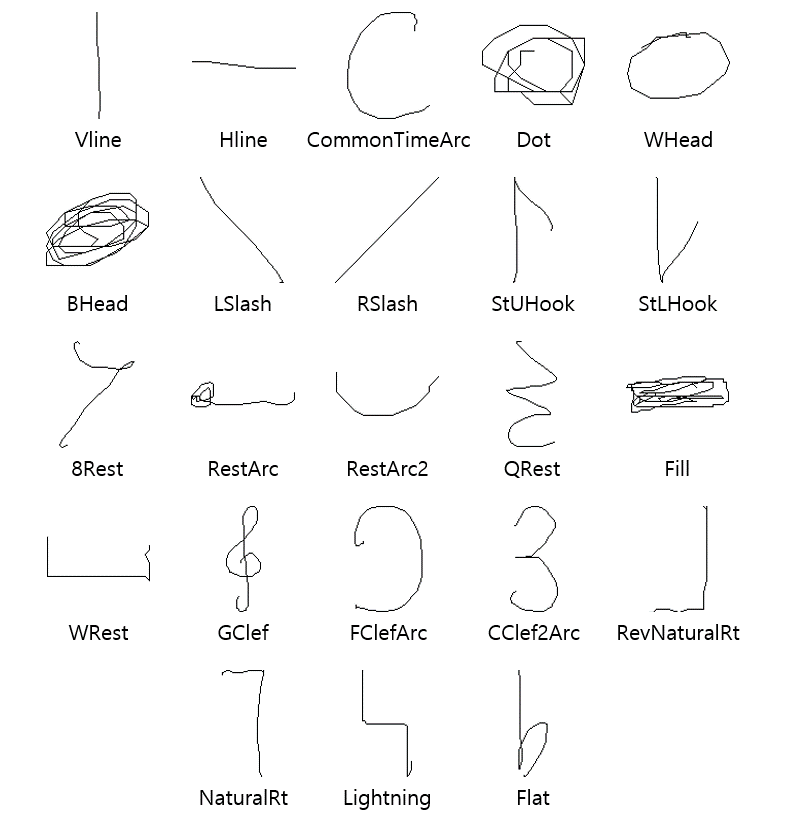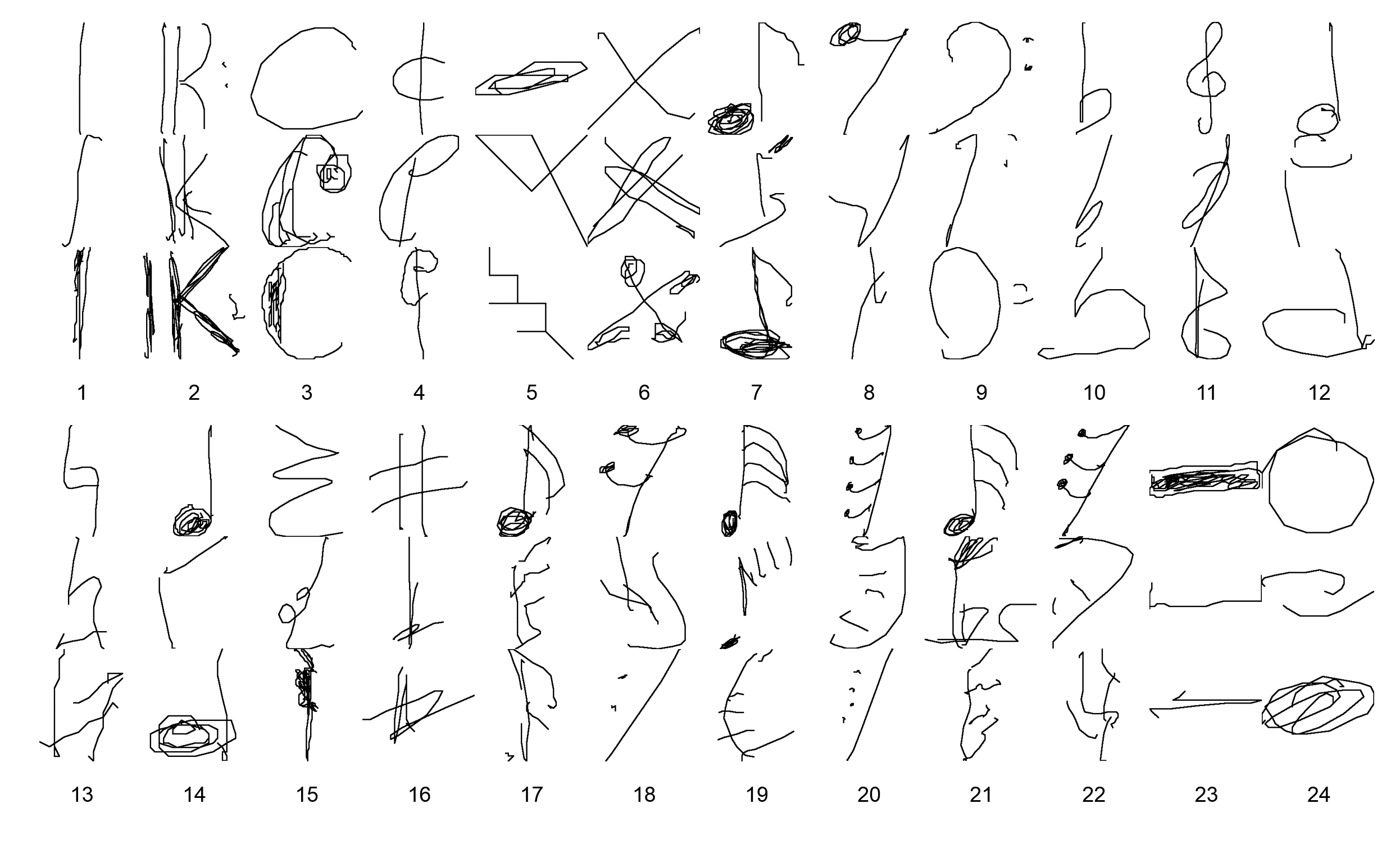Difference between revisions of "Labels of strokes in a subset of HOMUS Dataset"
| Line 5: | Line 5: | ||
Each symbol belongs to one of 32 classes in the consideration that the eighth, sixteenth, thirty-second, and sixty-fourth note symbols and their horizontally inverted symbols are included in the same classes, respectively. | Each symbol belongs to one of 32 classes in the consideration that the eighth, sixteenth, thirty-second, and sixty-fourth note symbols and their horizontally inverted symbols are included in the same classes, respectively. | ||
Each symbol sample in this dataset consists of at least one stroke and a stroke is defined as a sequence of two dimensional points, which are the successive locations of a stylus pen on a device in time sequence while the pen touches the device. | Each symbol sample in this dataset consists of at least one stroke and a stroke is defined as a sequence of two dimensional points, which are the successive locations of a stylus pen on a device in time sequence while the pen touches the device. | ||
| − | + | Nonetheless, the dataset does not serve labels corresponding to the strokes of symbols in the dataset. | |
We consider a musical symbol as a set of strokes<ref>J. Calvo-Zaragoza and J. Oncina, "Recognition of Pen-Based Music Notation: The HOMUS Dataset", ''Proceedings of 2014 22nd International Conference on Pattern Recognition (ICPR)'', pp. 3038-3034.</ref>. | We consider a musical symbol as a set of strokes<ref>J. Calvo-Zaragoza and J. Oncina, "Recognition of Pen-Based Music Notation: The HOMUS Dataset", ''Proceedings of 2014 22nd International Conference on Pattern Recognition (ICPR)'', pp. 3038-3034.</ref>. | ||
Revision as of 00:21, 12 July 2016
This page is under construction!
The Handwritten Online Musical Symbols (HOMUS) dataset<ref>http://grfia.dlsi.ua.es/homus/</ref> consists of 15200 musical notations or symbols collected from 100 musicians.
Each symbol belongs to one of 32 classes in the consideration that the eighth, sixteenth, thirty-second, and sixty-fourth note symbols and their horizontally inverted symbols are included in the same classes, respectively.
Each symbol sample in this dataset consists of at least one stroke and a stroke is defined as a sequence of two dimensional points, which are the successive locations of a stylus pen on a device in time sequence while the pen touches the device.
Nonetheless, the dataset does not serve labels corresponding to the strokes of symbols in the dataset.
We consider a musical symbol as a set of strokes<ref>J. Calvo-Zaragoza and J. Oncina, "Recognition of Pen-Based Music Notation: The HOMUS Dataset", Proceedings of 2014 22nd International Conference on Pattern Recognition (ICPR), pp. 3038-3034.</ref>.
References
<references />

